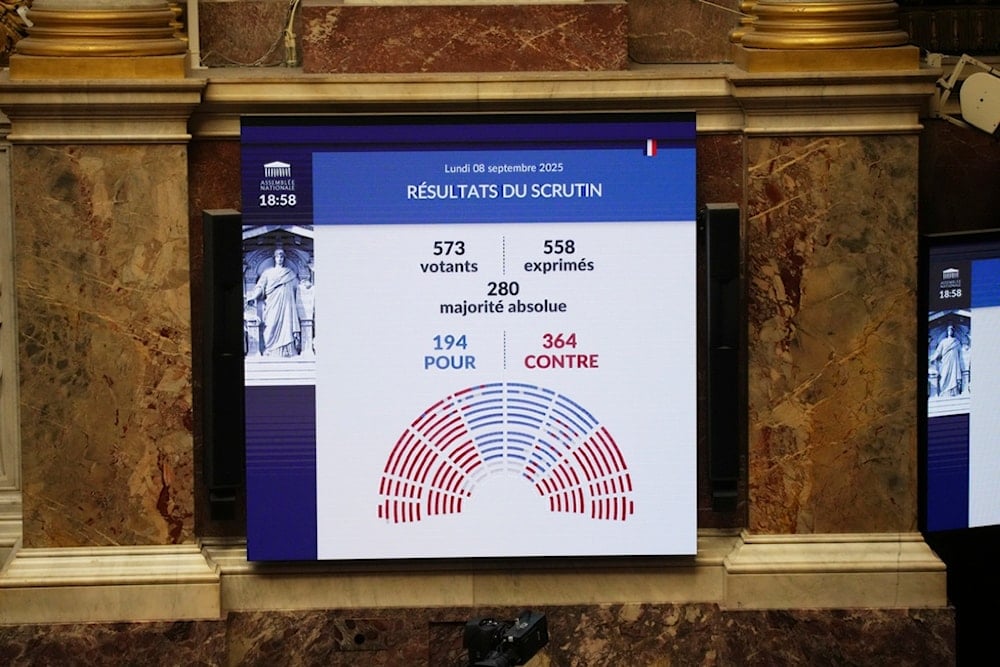Macron to appoint new prime minister after Bayrou government falls
French Prime Minister François Bayrou was ousted in a no-confidence vote over austerity measures, leaving President Emmanuel Macron to appoint a seventh prime minister.
-

A scoreboard at the National Assembly shows the results of a no-confidence motion vote prompted by budget disputes that forces Prime Minister Francois Bayrou to resign, Monday, Sept. 8, 2025 in Paris. (AP Photo/Christophe Ena)
French President Emmanuel Macron will appoint a new prime minister in the coming days after the government of François Bayrou collapsed under a parliamentary vote of no confidence, the Elysee Palace confirmed Monday.
Lawmakers withdrew their support from Bayrou's administration in protest against a sweeping €44 billion austerity package that included tax hikes, spending cuts, and even proposals to abolish two national holidays. The plan, intended to rein in France's debt, instead triggered fierce resistance across the political spectrum, with left- and right-wing blocs uniting to vote him out.
Bayrou's decision to call a confidence vote before presenting the 2026 budget deepened resentment, with critics accusing him of reckless brinkmanship. His ouster mirrors that of Michel Barnier, who was forced out in December 2024 over similar budget disputes, highlighting the instability of Macron's presidency in a parliament without a governing majority. Bayrou was the sixth prime minister since 2017, and Macron will now be forced to name his seventh.
The political crisis is compounded by collapsing public confidence in Macron himself. According to an Odoxa-Backbone poll for Le Figaro, 64% of French voters want the president to resign rather than appoint another prime minister. An Ifop survey for Ouest-France found his disapproval rating at 77%, the worst of his tenure.
Meanwhile, street pressure is mounting. The Bloquons tout movement has called for a nationwide day of action on September 10, and trade unions have urged workers to strike on September 18 in protest of austerity and in defense of social protections.
Macron is also weighing his parliamentary options. Reports suggest he may seek an alliance with the Socialist Party (PS) to push through a budget, with Socialist leader Olivier Faure openly expressing his willingness to become prime minister and even circulating his own draft budget. But Socialist backing alone may not secure wider support from other left-wing factions, leaving Macron with the risk of either continued gridlock or snap elections that could strengthen the far right.
Read more: Rubio calls France to strongly oppose recognition of Palestine

 2 Min Read
2 Min Read







